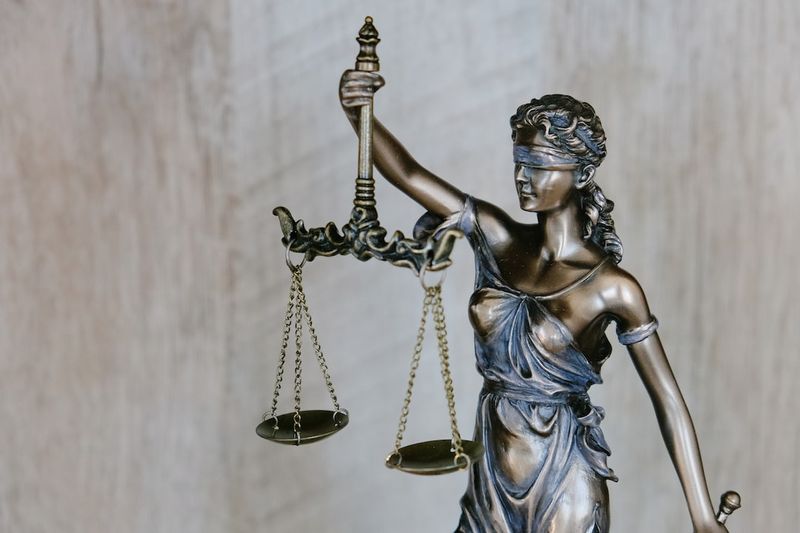ABC Drops Defence in Former Soldier Heston Russell’s Defamation Case to Avoid Naming Source
Background
The Australian Broadcasting Corporation(ABC) has abandoned its defence in a defamation case filed by retired Special Forces Commander Heston Russell. The ABC sought to avoid revealing the identity of a journalist’s source, leading to the decision to drop its defence. The case has sparked debates about the importance of protecting sources and the freedom of the press.
The Defamation Case
Heston Russell initiated legal action against the ABC, along with journalists Mark Willacy and Josh Robertson. The defamation case stems from a story published by the ABC in November 2021, which Russell claims implied his involvement in the death of an Afghan prisoner. While the story included a denial from Russell, he argued that it still created the impression of his involvement.
In February, Justice Michael Lee ruled that the ABC had conveyed 10 defamatory meanings in the story, including the claim that Russell was involved in shooting and killing an Afghan prisoner. The ABC initially relied on a truth defence but later switched to a public interest test, asserting that the story was in the public interest.
The Court Order
In a recent court order, the Federal Court directed the ABC to disclose unredacted documents that contained the identity of a US Marine known as “Josh.” The ABC‘s barrister, Lyndell Barnett, stated that the broadcaster would not comply with the order, emphasizing the importance of protecting sources. Russell’s barrister, Sue Chrysanthou, argued that the unredacted documents were crucial to the case.
The ABC‘s Decision
Director of ABC News, Justin Stevens, underscored the significance of protecting sources in public interest journalism and announced the ABC‘s decision to abandon its defamation defence. Stevens emphasized the ethical responsibility of journalists to honor promises made to sources, asserting that this principle outweighed the opportunity to defend the ABC‘s journalism in court.
Editorial: The Importance of Source Protection
The ABC‘s decision to drop its defence in Heston Russell’s defamation case raises fundamental questions about the freedom of the press and the role of source protection in investigative journalism. Source protection is essential to ensure that journalists can safely obtain and publish information in the public interest.
The foundation of journalism is trust. Journalists rely on confidential sources to uncover and report on matters that affect the public and hold those in power accountable. Without the assurance of anonymity, sources may fear reprisal, leading to the suppression of critical information. In turn, this undermines the principles of democracy.
The Australian media landscape has long recognized the importance of source protection. Journalists have a duty to ensure that sources’ identities remain confidential unless there are compelling reasons to disclose them. The need to protect sources is enshrined in journalistic codes of ethics, and courts have recognized the legitimate public interest in preserving source anonymity.
Public Interest Journalism
The principle of source protection is particularly crucial in public interest journalism. Investigative reporting often relies on whistleblowers and insiders who expose wrongdoing or shed light on important societal issues. By guaranteeing the anonymity of these sources, journalists can uncover corruption, human rights abuses, and other forms of misconduct that would otherwise remain hidden.
The ABC‘s decision to prioritize source protection over its defamation defence reflects its commitment to responsible journalism. It sends a strong signal about the importance of safeguarding sources and maintaining public trust in the media.
Press Freedom
The protection of sources is closely tied to press freedom. The ability of journalists to seek out and protect confidential sources is crucial to maintain a free and independent press. Source protection is vital for journalists to act as watchdogs, challenge power structures, and ensure transparency in government and other institutions.
A robust media landscape is essential for a healthy democracy. It fosters public debate, enables the exposure of corruption, and helps to safeguard individual liberties. When the media is hindered in its ability to protect sources, the public suffers as a result.
Advice for Journalists and Media Organizations
In light of the ABC‘s decision to drop its defence, it is imperative for journalists and media organizations to reflect on their practices and reaffirm their commitment to source protection. Here are some key principles to consider:
1. Uphold Ethical Standards
Journalists must adhere to ethical standards that prioritize source protection. This means maintaining the confidentiality of sources and striving to minimize any harm that could result from source disclosure.
2. Understand Legal Obligations
Journalists should familiarize themselves with the legal landscape surrounding source protection in their jurisdiction. It is essential to understand the legal rights and obligations related to the disclosure of sources, as well as any legal protections that may exist.
3. Educate Sources
Journalists should clearly explain the risks and benefits of disclosing information to potential sources. By educating sources about the importance of source protection and the potential consequences of disclosure, journalists can help sources make informed decisions.
4. Adopt Secure Communication Practices
Media organizations should invest in secure communication tools to protect the confidentiality of sources. Encrypted messaging platforms and secure file-sharing systems can help ensure that sensitive information remains private.
5. Advocate for Legislative Protections
Journalists and media organizations should advocate for legislation that provides strong protections for source anonymity. Press associations and industry bodies can play a crucial role in lobbying for legal frameworks that safeguard the freedom of the press and source protection.
Conclusion
The ABC‘s decision to drop its defence in Heston Russell’s defamation case highlights the ongoing struggle to protect confidential sources in investigative journalism. Source protection is a cornerstone of press freedom and enables journalists to fulfill their vital role in informing the public and holding power to account. Media organizations and journalists must continue to prioritize source protection and advocate for robust legal protections to ensure the continued integrity and independence of the press.

<< photo by Pawel Czerwinski >>
The image is for illustrative purposes only and does not depict the actual situation.
You might want to read !
- Jabeur gets revenge on Rybakina in stunning upset
- End of an Era: Power Couple Andrew and Nicola Forrest Part Ways After Three Decades
- Battle of the Titans: Man United vs Leeds United starting lineups and team news
- Exclusive: ABC’s U-turn in Heston Russell’s legal battle
- Huw Edwards Accused by Wife: Unveiling the Allegations against the BBC Presenter
- Tragic Explosion in Queensland Leaves One Person Missing
- “Remembering an Icon: Australian National Treasure Passes Away at Age 94”
- A Tale of Two Acquittals: Miriam Margolyes, Martha Stewart, and the Controversial Contrasts
- “From Down Under to Prime Time: Aussie Talent Shines in the Emmy Race”
- Matt Damon’s Daughters Shine on the Red Carpet: A Rare Glimpse into their Glamorous World




